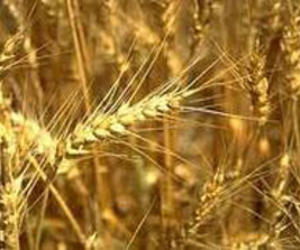Cuban market could be enticing to Tulare County growers
- Submitted by: manso
- Business and Economy
- 02 / 09 / 2011

February 9, 2011. Cuba could be a market for rice, corn, wheat, poultry and pork grown in the U.S. and California, said Parr Rosson, a panelist at the World Ag Expo.
Recent relaxed trading restrictions and plenty of potential consumers — Cuba's populations is more than 11 million people — create demand for the products, Rosson said.
But there's a permit-filing process to complete and Cuba's national earning power limits their available expending money, he said.
"There's potential — short term potential and long term potential," Rosson said. "But the future is very complicated."
Rosson, a professor at Texas A&M University, led a panel discussion Tuesday, opening day at the expo. He's the director of North American Studies, department of Agricultural Economics at the university.
A former Spanish colony, Cuba changed leadership three years ago when Raul Castro took over for his older brother, Fidel. And, since it's 90 miles off the coast of Florida, Cuba might be a good destination for U.S. businesses.
However, a U.S. embargo on Cuba, prohibiting exporting, still exists.
But there are exceptions, Rosson said, that make for business opportunities.
And because Cuba can't maintain high yields of grains, vegetable and milk, the country must import the goods. Limited water, limited quality water, soil conditions and location — right in the middle of hurricane alley in the Caribbean — prevent Cuba from maintaining high crop yields.
"I don't see that changing overnight," Rosson said.
The Caribbean country must also import corn, poultry and pork. And most of it will go to restaurants in resorts on the island.
Rosson said the general population simply doesn't have the means to pay for the those items.
Average salary in Cuba is $20 monthly and there's bureaucratic hurdles to clear for potential exporters. There are permits and visas to obtain and contacts to make, Rosson said.
On the average, that's an eight month process. But trying to tap the Cuba market could take up to two years, Rosson said.
Obtaining a permit shows potential exporters are interested in creating a market and have a much easier time getting a visa, Rosson said.
U.S. exports to Cuba have decreased over the past two years, Rosson said. U.S. imports hit the high water mark in 2008.
But with relaxed restriction on traveling for Cuban Americans and the limit to send money back to the island increasing, Rosson said there could be plenty of money to buy American imports.
"I am cautiously optimistic," he said.
Source: www.visaliatimesdelta.com/article/20110209/NEWS01/
Comments